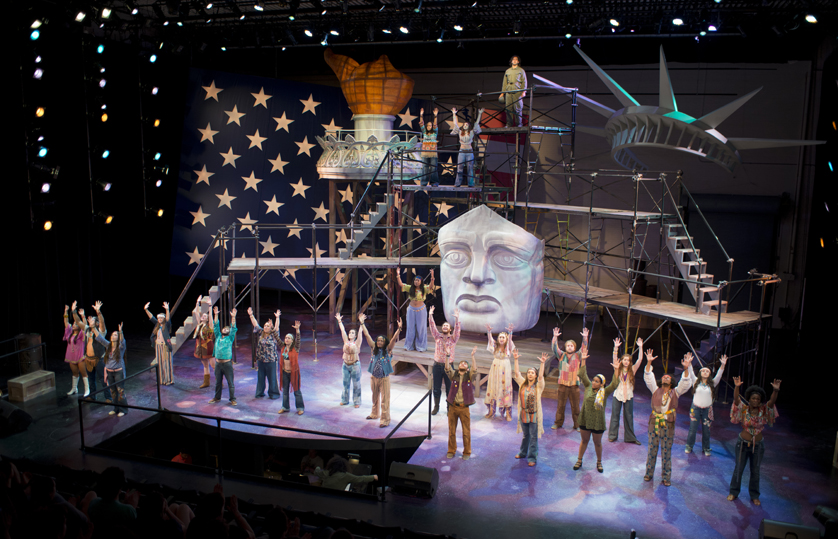
Mission
The Department of Theatre & Dance develops creative citizens who pursue multiple ways to know and articulate truths about the world through the study and practice of performance. The curriculum melds intensive studio training and substantive critical analysis in the liberal arts tradition.
The departmental production season affords further opportunities for embodied application of artmaking in the public arena. We aim to produce flexible, rigorous artist-thinkers who can contribute to the greater good. Our course offerings and productions embrace diverse aesthetic forms drawn from various performance techniques, historical eras, and cultural traditions.
Collaboration is our core value and the foundation of the program. Faculty, staff, and students join together to create a spirited department characterized by trust, personal responsibility, healthy risk-taking, and mutual respect. Ultimately, the department equips students with the intellectual, artistic, and interpersonal skills to comprehend and adapt to a changing world and in turn remake it as independent thinkers, citizens, and creators.
Theatre Learning Goals
Muhlenberg Theatre Program Learning Goals
Students should:
- Investigate the functions and value of performances in human life by making performances and by studying them.
- Create meaningful and vivid performances using a variety of generative artistic processes.
- Analyze performances in cultural and historical context using a range of contemporary scholarly methods.
- Integrate embodied and scholarly/analytic approaches to performance.
- Make artistic choices informed by conceptual understanding and practical training.
- Exhibit a rigorous work ethic grounded in a productive approach to collaboration.
- Develop a personal yet self-reflective voice, expressed in artistic and scholarly/analytic modes.
- Discern their individual contribution to the performing arts as producers, advocates, critics, and consumers of culture.
- Write creatively and cogently about performances.
- Cultivate an informed artistic point-of-view sharpened by the integration of knowledge about theatrical performance with insight derived from interdisciplinary connections within the broad liberal arts framework.
Dance Learning Goals
Muhlenberg Dance Program Learning Goals
1. Train versatile dancers with an expressive range, stylistic versatility, mastery of technique and artistry through:
- Providing rigorous physical training
- Engaging in multiple technique studies and somatic practices
- Understanding of anatomy and kinesiology
- Encouraging development of a personal physical understanding
2. Develop artists and thinkers who synthesize diverse knowledge areas through self-directed research in performance, choreography, and scholarly arenas through study of:
- multi-faceted curriculum which hones analytical skills and scholarly abilities.
- socio-historic perspectives on dance and cultural practices
- creative practices within dance composition and writing
- analytical theories regarding performance, choreography, dance education, and dance science.
3. Create informed and responsible producers and consumers of dance related technologies.
4. Cultivate resourceful, collaborative, resilient artists, scientists, educators, consumers, participants, and advocates who are able to discern their current and future contributions to dance and society.
